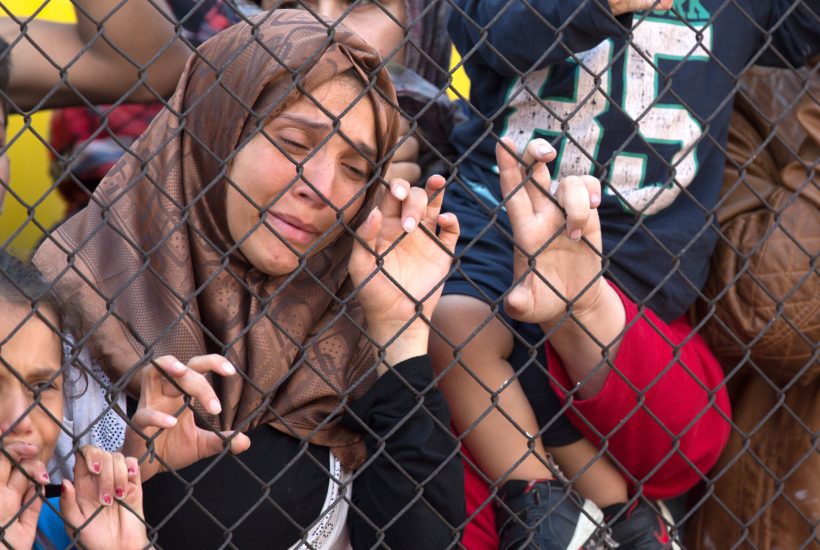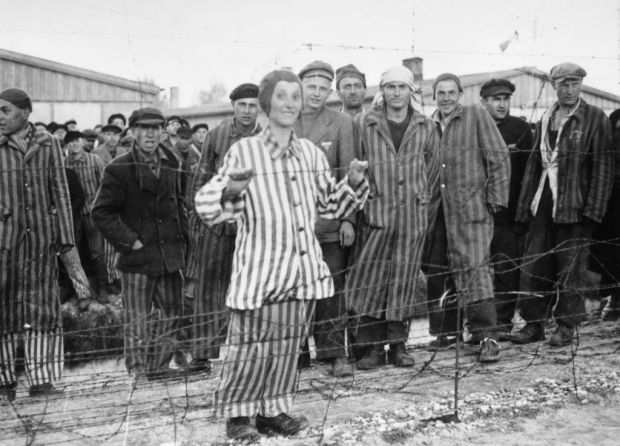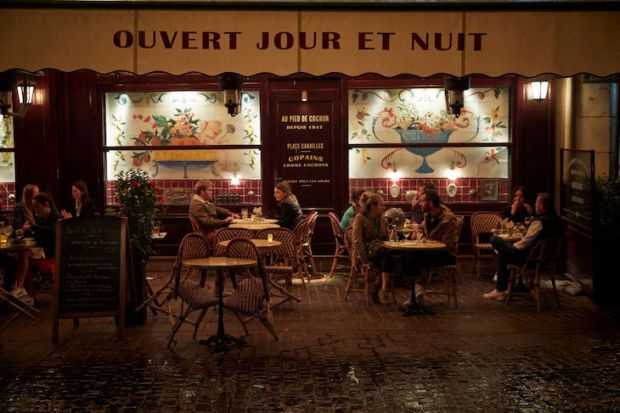On Tuesday, Franek Sterczewski made a break for the border. Wearing a long trench coat and carrying a blue plastic bag, he managed to outrun one armed soldier before being stopped by a line of officers. Sterczewski, however, wasn’t fleeing his native Poland — he was trying to help those who desperately want to get in.
Upadek instytucji immunitetu… pic.twitter.com/GO7P7lfcE7
— Jakub Wojtanowski (@jakwojtanowski) August 24, 2021
The rebellious 33-year old MP had planned to hand out medicine and water to the line of asylum seekers camped out on the eastern frontier with Belarus. Hundreds of people from countries like Iraq, Syria and Afghanistan have begun making the crossing into the EU in recent weeks, prompting outcry in neighbouring Poland and Lithuania. Now, with Warsaw and Vilnius laying down makeshift barbed-wire border fences, they are stuck in the vast green forests of Eastern Europe, making daily attempts to evade the authorities and slip through to safety.
Brussels has accused the Belarusian government of actively shipping in would-be refugees by laying on flights from troubled destinations like Baghdad, bussing them to the border and refusing to allow them to turn back. Those depending on the scheme say they’ve paid their life savings to traffickers and are often terrified of being sent back. Belarus denies the charge that it is ‘weaponising vulnerable people’, instead insisting officials are simply no longer prepared to stop them reaching the EU because of the latest round of sanctions imposed on the country by the bloc.
While Poland and Lithuania have welcomed the fleeing Belarusian opposition with open arms, asylum seekers moving through the country are facing a frostier welcome. Lithuania which, until now, has seen the sharpest increase in crossings, has passed emergency laws that have been criticised by the EU’s human rights commissioner. Those protests have fallen on deaf ears.
Warsaw has faced even stronger condemnation, with claims that its border troops have used force to turn back groups of people seeking safety. The UN’s refugee agency has said that while it ‘acknowledges the challenges posed by recent arrivals to Poland,’ the country must now ‘provide access to territory, immediate medical assistance, legal advice, and psychosocial support’.
Instead, the government has doubled down on its plans to build a 2.5 metre-high fence to secure the EU’s eastern flank. Brussels has even pledged millions of Euros to support the policing operation, which its officials are treating more as an act of hybrid warfare than a humanitarian issue. ‘This is primarily an act of aggression from the Lukashenko regime and not a migration crisis,’ the EU commissioner for home affairs said earlier this month. For those sleeping rough and hoping for the chance to make a new life, the difference may not be as obvious.
Just last year, the EU’s top court censured Hungary’s right-wing government for what it described as the arbitrary detention of asylum seekers and holding hundreds of people in temporary facilities near the border. When, in 2015, Viktor Orban announced that his country would build a wall to block off a steady stream of migrants coming through the Balkan region and up into Central Europe, it was met with widespread condemnation by other EU leaders. Those values appear now to have changed, and even some of the strongest voices for the rights of refugees have fallen silent.
The situation is likely to get worse before it gets better. Though Brussels is keen to argue that the influx of asylum seekers through Belarus has been artificially manufactured by Lukashenko, an undeniable crisis starting to rear its head. While public support has been firmly behind the tens of thousands of Afghans airlifted from Kabul airport for resettlement, the UNHCR has warned that many more may be paying smugglers to cross land borders in an effort to escape the Taliban. It is doubtful that Afghans entering Europe will receive the same kind of support as those who managed to get out through evacuation schemes
Destabilisation is also taking place closer to home. In Turkey, which hosts more than four million refugees — mostly Syrians fleeing civil war — the atmosphere has soured for those seeking safety. Earlier this week, a nationalist mob descended on a neighbourhood known for its asylum seekers, attacking businesses and beating shopkeepers. Growing resentment and a worsening economic situation means that Europe is unlikely to be able to rely on Ankara to do the kind of heavy lifting on migration that it has in the past.
All of this points to problems on the horizon for the EU. While some politicians, like Poland’s Sterczewski, will keep piling pressure on authorities not to turn a blind eye to suffering taking place just metres from their borders, most leaders understand that the domestic rhetoric around refugees is febrile at best. With Poland and Hungary already in outright rebellion against Brussels anyway, the chances of keeping the bloc unified around any kind of policy are looking vanishingly slim. That is unfortunate not just for the bureaucrats, but for the desperate people caught up in their politics.<//>
Got something to add? Join the discussion and comment below.
Get 10 issues for just $10
Subscribe to The Spectator Australia today for the next 10 magazine issues, plus full online access, for just $10.




















Comments
Don't miss out
Join the conversation with other Spectator Australia readers. Subscribe to leave a comment.
SUBSCRIBEAlready a subscriber? Log in